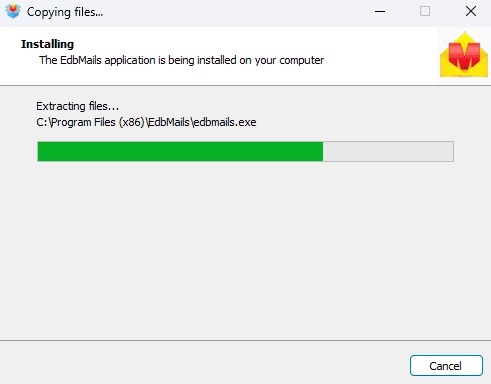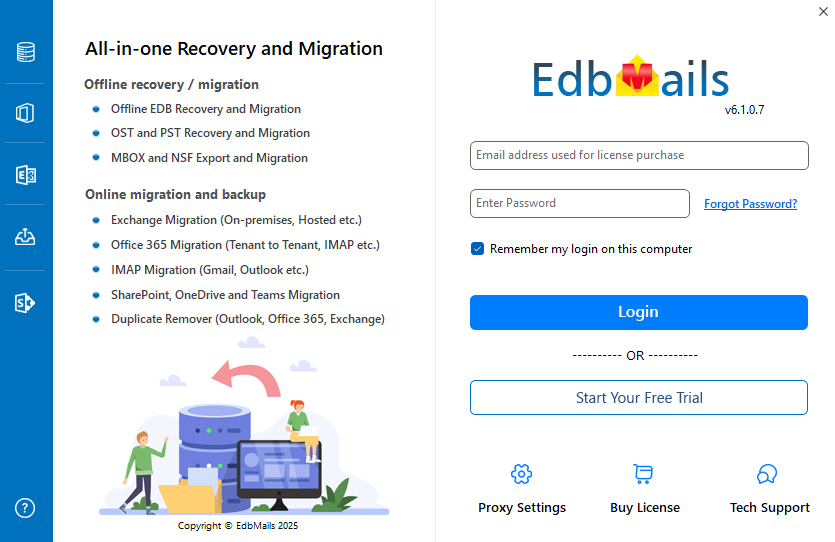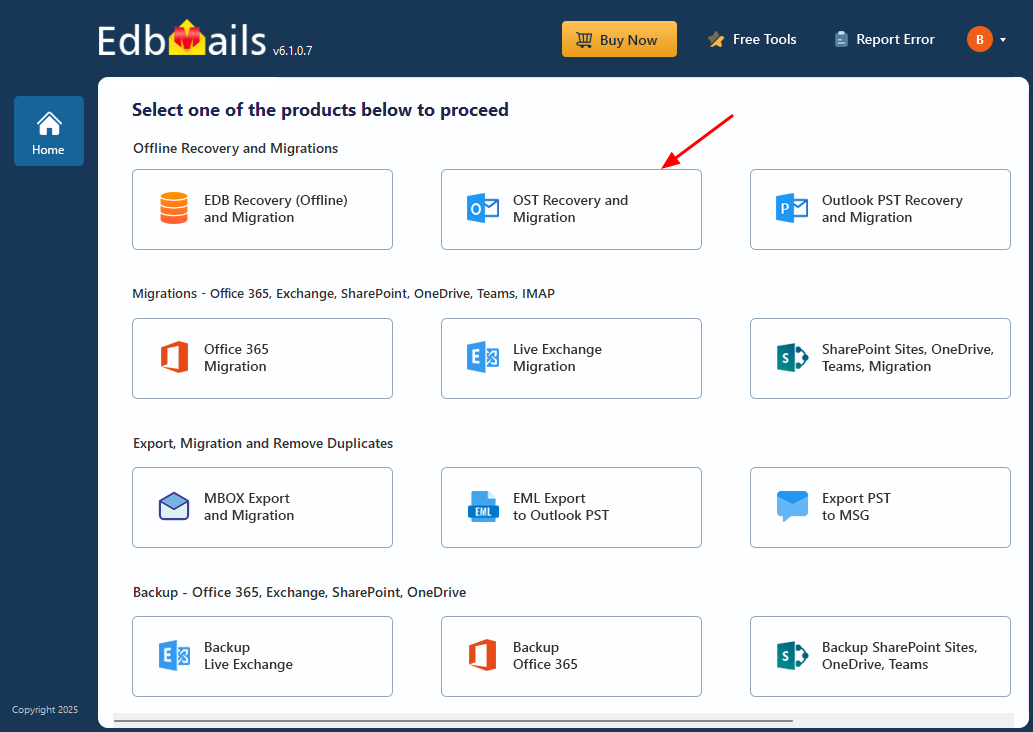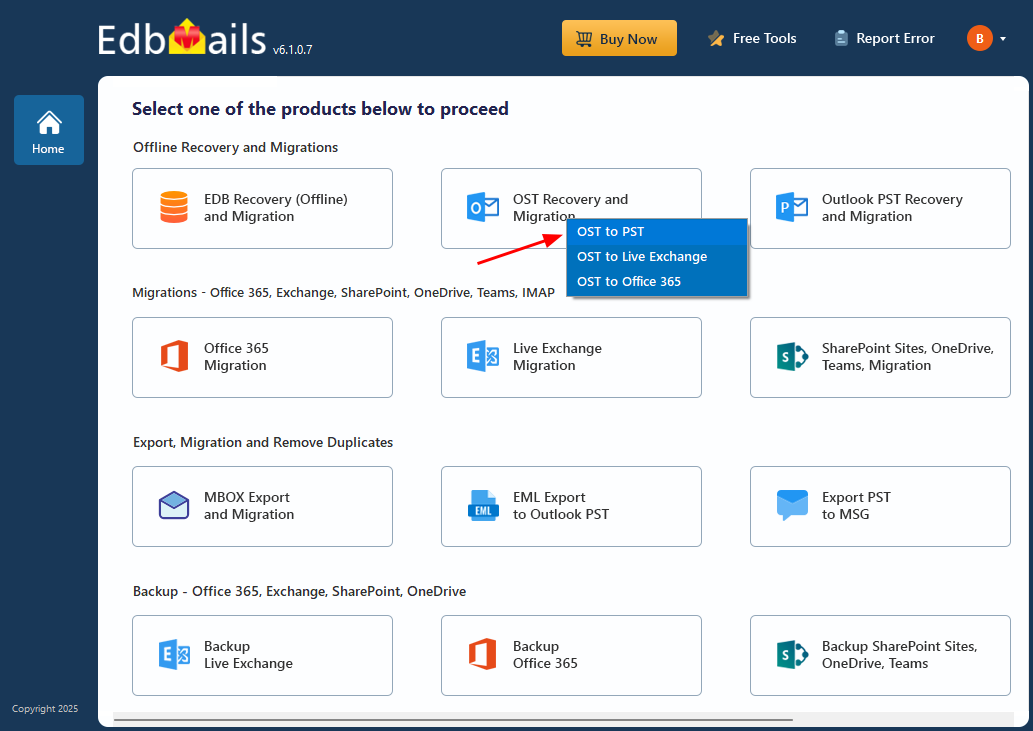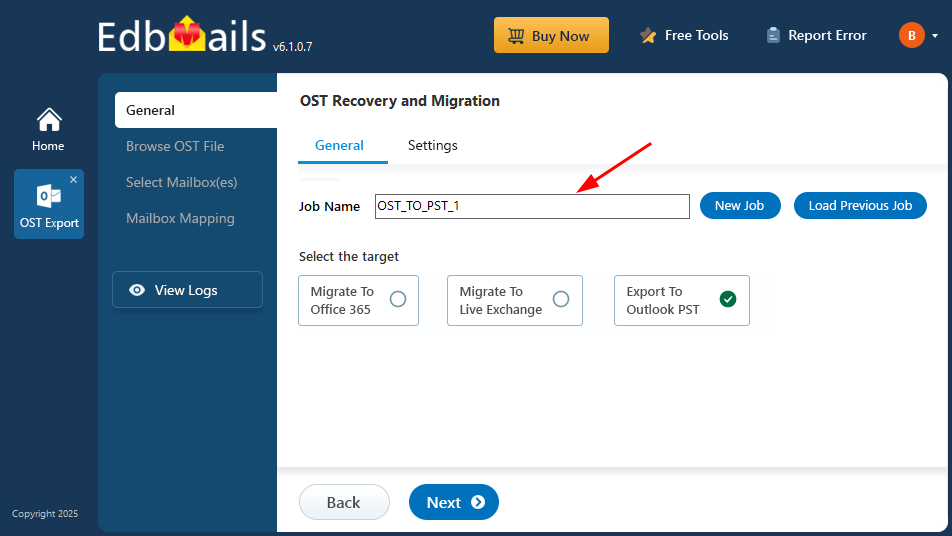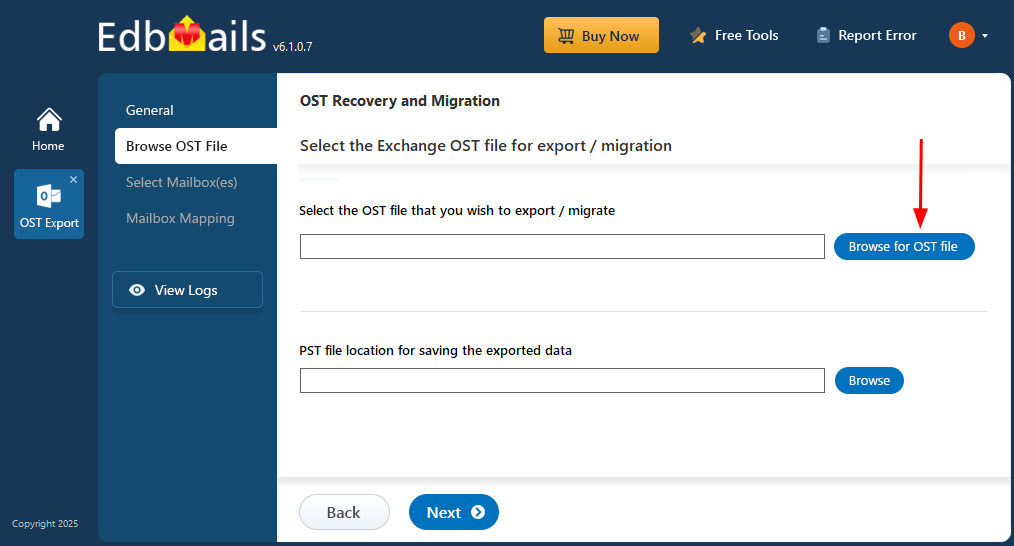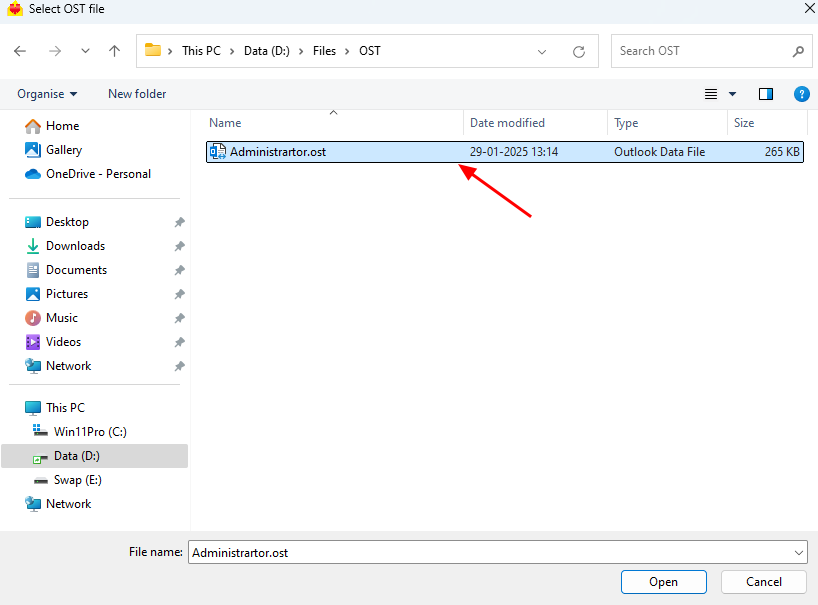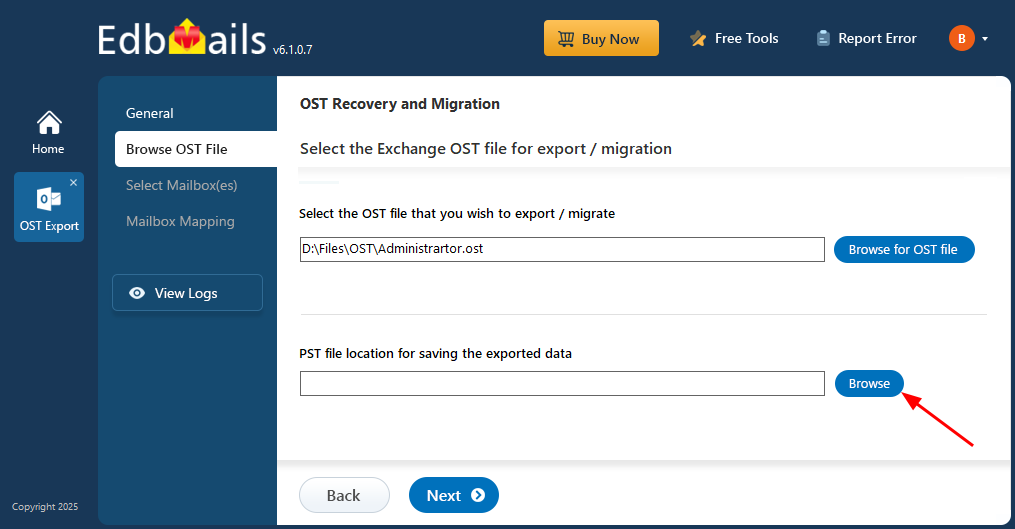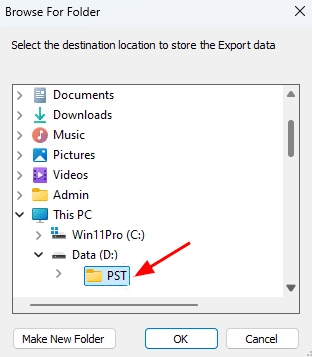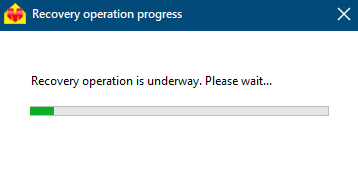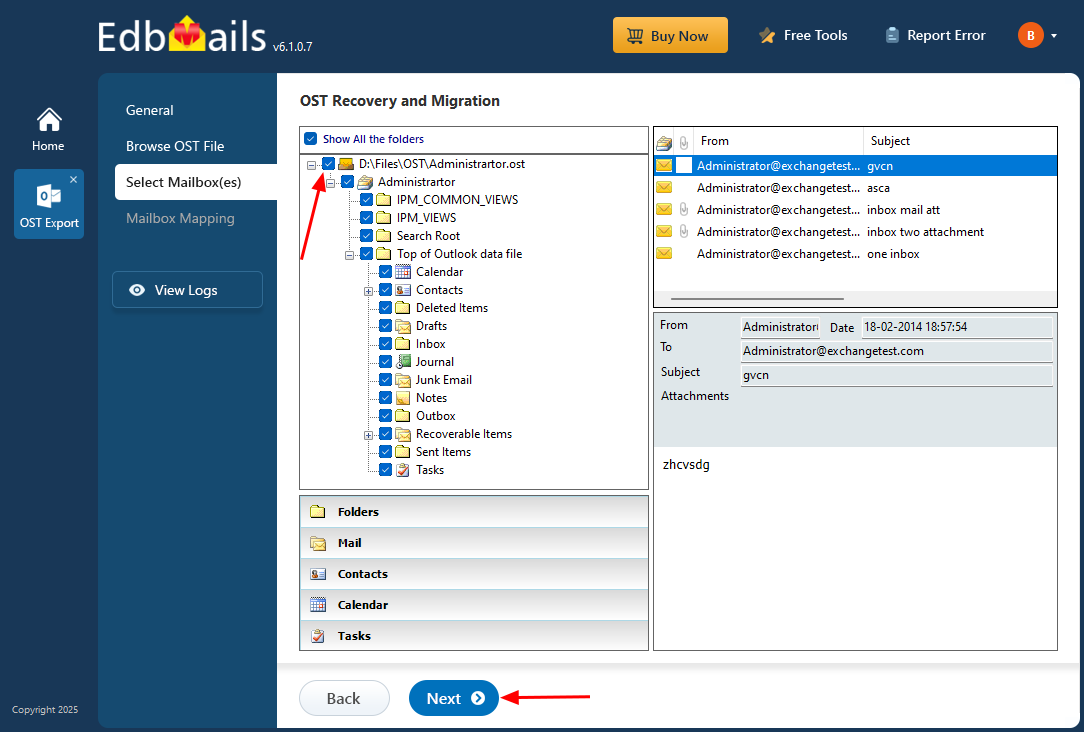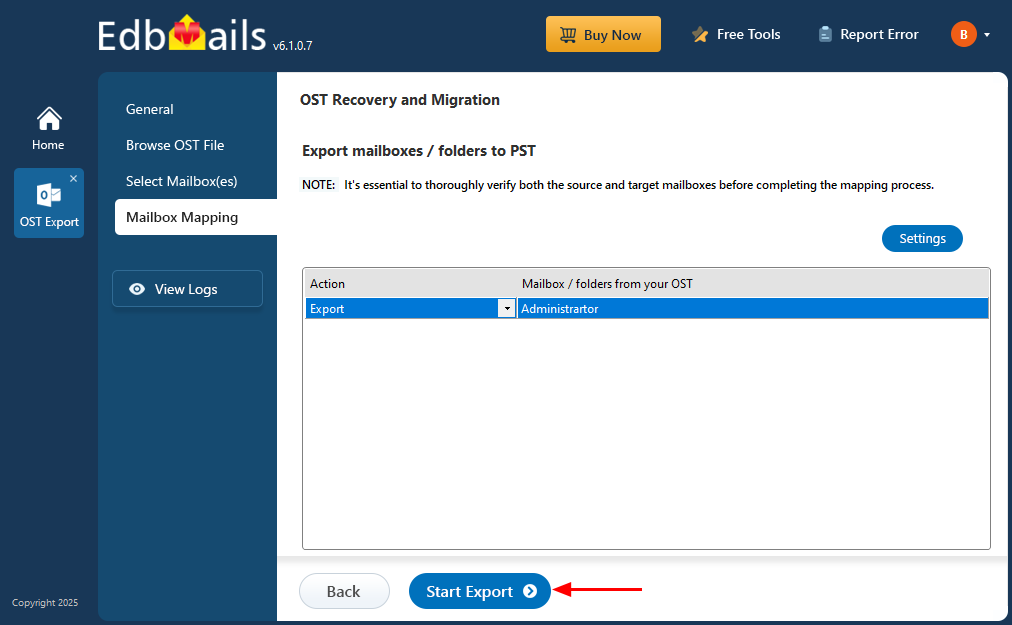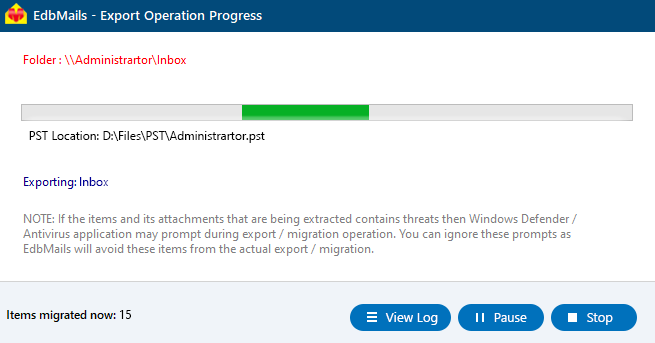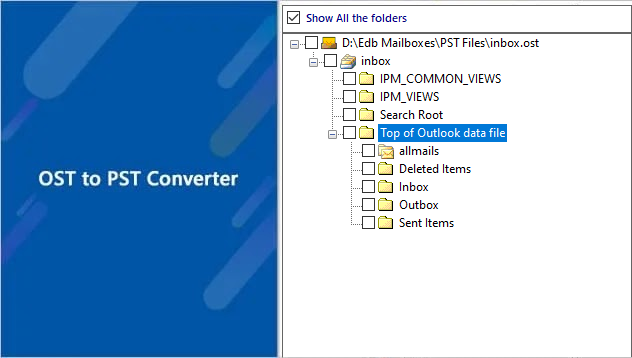Recover and Convert Encrypted OST File to PST
Microsoft Outlook OST (Offline Storage Table) files store a synchronized copy of mailbox data from an Exchange, Microsoft 365, or IMAP account. These files allow users to work offline and automatically sync changes once the connection to the mail server is restored. To protect mailbox data, OST files are encrypted using a unique MAPIEntryID GUID key that ties the file to a specific Outlook profile. In some cases, additional password-based encryption is also applied through Outlook account settings.
However, this security mechanism can become a challenge when the OST file becomes corrupted, the Exchange profile is deleted, or the password is forgotten. In such scenarios, Outlook can no longer access the OST file, leaving important emails, contacts, calendars, and other mailbox items inaccessible.
The most reliable solution is to recover the encrypted OST file and convert it into a PST (Personal Storage Table) file. PST files are independent of Exchange profiles and can be opened directly in Outlook without requiring original account credentials. EdbMails OST to PST Converter makes this process simple and secure by recovering data from encrypted, orphaned, or corrupted OST files and converting them into fully accessible PST files.
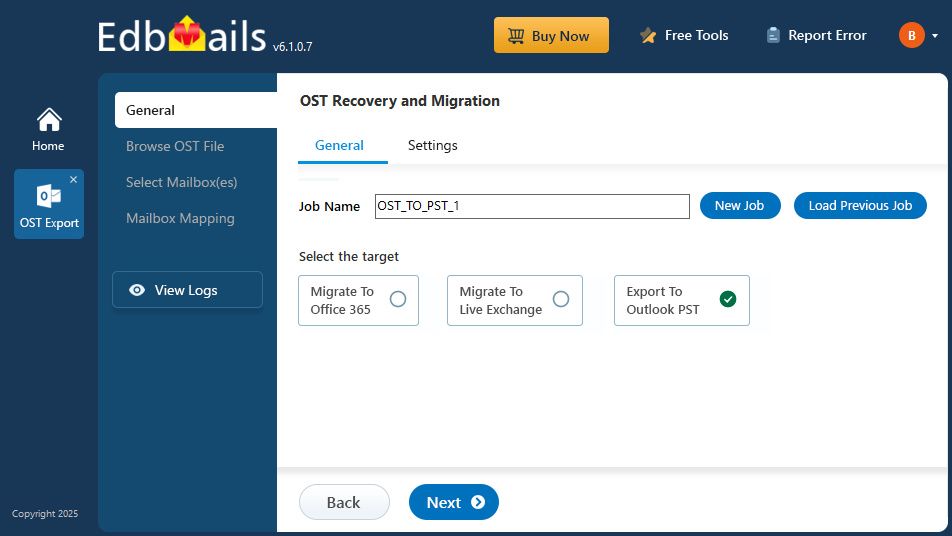
This page explains the causes of OST file corruption and how EdbMails recovers encrypted OST data and converts it to PST.
- Abrupt Network Interruptions: OST files constantly synchronize with the Exchange server. If a network device disconnects unexpectedly or the connection drops during synchronization, the data write process can be interrupted. This often results in inconsistencies within the OST file, making it unstable or inaccessible. EdbMails recovers mailbox data directly from corrupted OST files without relying on network connectivity or server synchronization.
- Oversized OST Files: When an OST file grows beyond recommended size limits, it becomes more difficult for Outlook to manage and maintain stability. Keeping large OST files for long periods increases file corruption. Exporting such files to PST helps reduce these risks. EdbMails securely converts large OST files into PST format and supports PST splitting, helping prevent further corruption and making mailbox data easier to manage.
- Malware, System, and Application Issues: OST corruption can also occur due to virus or malware infections, ransomware attacks, storage device failures, incompatible Outlook plugins, faulty updates, or repeated Outlook crashes. These issues can damage the internal structure of the OST file. EdbMails uses advanced scanning to extract data from damaged or infected OST files and restores mailbox items while maintaining data integrity.
- Unexpected Outlook or System Shutdowns: Sudden system shutdowns or forced Outlook closures while the OST file is in use can interrupt read/write operations, leading to file corruption. EdbMails repairs file-level inconsistencies and recovers mailbox data even when Outlook cannot open the OST file.
- Storage Device Errors: Bad sectors or failures in the storage device where the OST file resides can cause partial data loss or corruption, making the file unreadable. EdbMails extracts mailbox data from corrupted OST files stored on faulty drives and converts it into accessible PST files.
Recover encrypted OST file and convert OST to PST
With EdbMails OST to PST Converter, you can easily recover encrypted OST files and convert them to PST format. The tool uses advanced algorithms to ensure the recovery of encrypted or password-protected OST files without any data loss. It supports standard encryption techniques and works with OST files from all versions of Outlook, including 2021, 2019, 2016, 2013, 2010, 2007, and 2003.
Steps to export encrypted OST file to PST
Step 1: Download and install EdbMails converter tool for OST on your computer
- Download and install the EdbMails application on any Windows-based computer.
- Launch the EdbMails application on your system.
- Enter your registered email address and password, then click ‘Login’. New users can select ‘Start Your Free Trial’ to continue with the trial version.Note: The Free Trial allows you to access all features and export up to 30 items from each folder. To remove this limitation and enable full access, a valid license must be purchased from the EdbMails website.
Click here to purchase the license from the EdbMails website.
Once the purchase is complete, close and reopen the EdbMails application. Then, log in with the same email address and password used during the purchase to activate your license. - Select ‘OST Recovery and Migration’.
- Select operation as ‘OST to PST’.
- You may keep the default job name as it is, or select the ‘New Job’ option if you want to rename and create a new job.
- Then click ‘Next’ to proceed.
Step 2: Select the encrypted OST file for the export
- Click ‘Browse for OST file'.
- Select the OST file that you want to export from your local drive, then click the ‘Next’ button to continue. If needed, you can also choose an OST file located on a network drive, provided it has the required read and write permissions enabled.
- Click ‘Browse’.
- Select the destination folder to save the exported PST files, and ensure the drive has enough free space to complete the export.
- EdbMails thoroughly examines the offline OST file to restore mailbox data, even if the file is damaged or corrupted. It carefully evaluates the file’s structure and internal data to retrieve emails and other mailbox items. The scan duration may vary based on the file size and the extent of corruption, so allowing the process to finish ensures complete and accurate recovery.
- Once the recovery is complete, the application presents the OST file data with its original folder and subfolder structure fully intact. You can easily expand any folder to browse through its contents. Selecting a folder, such as Emails, Contacts, Notes, Tasks, or Calendar, displays all related items, along with a clear and detailed preview on the right side of the screen. With EdbMails OST to PST Converter, you can open OST files even without installing Outlook.
Step 3: Preview and select the mailbox
- Select the desired mailboxes or folders, then click the ‘Next’ button to proceed.
- EdbMails allows you to apply filters to customize your export process. For example, you can use date filters to export items within a specific date range. To do this, go to the ‘General’ tab on the left side and then click the ‘Settings’ tab at the top right.
Click here to learn more about setting date filters for OST to PST conversion.
Step 4: Export the mail items from Outlook OST to PST
- EdbMails OST to PST converter ensures fast and accurate conversion of offline OST files to PST format. Review the selected mailboxes and folders for the export operation, ensure the ‘Action’ is set to ‘Export’, and then click the ‘Start Export’ button to begin the export process.
- The export process has started, and you can track its progress through the status bar. The interface shows the mailbox and folder being exported, the destination PST file location, and the count of items successfully exported. When the export is complete, EdbMails will display a message confirming that the operation has finished.

